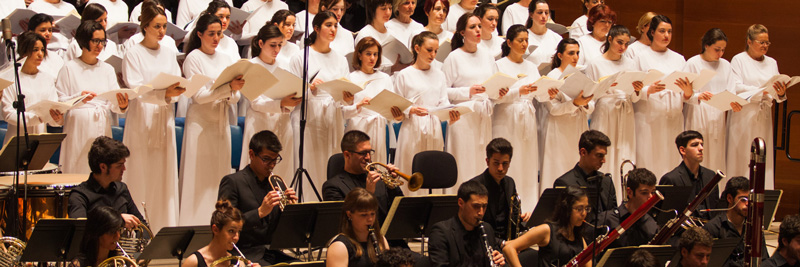

The Basque Country Music Centre, Musikene, has undoubtedly borne fruit over seventeen years of history. Among these fruits, the Musikene Symphony Orchestra is one of the most outstanding. It is one thing to train the soloists, to train the artists, but that training would be disrupted if the curricula did not lead the students to participate in larger instrumental groups.
To this end, the Symphony Orchestra of this centre was set up and, as the Arriaga Theatre has heard, we can say that they are doing a good job.
As a counterpoint to the illusion and courage of this young orchestra, we had the experience of the Donostiarra Orpheon on the stage, and between the two interpreted the Cherubini Requiem, a true whim, under the batuta of Victor Pablo Pérez. This réquiem is special when compared to other celebrities like Verdi or Fauré. Maybe Cherubini's is getting darker, but there are passages as tense as they're furious. The Orpheon, with the emphasis of the orchestra, was able to highlight all these nuances. We had a delicate initial Introitus. Although Dies Irae came out a little flat, we heard Sanctus strong and filmed. The final, totally mystical, was one of the best moments of the performance.
But this work was not the only incentive of the program. Béla Bartók's viola and orchestra concert was a great opportunity for the luxury of young viola Yana Kutxerova. The musician, born in Russia, received training at the Musikene centre in the Russian capital. He has received many awards in competitions and has offered many concerts throughout Europe. It showed a safe technique and, most importantly, a refined and warm sound, very nice. In addition, it has a balanced, elegant expressiveness. Bartók's concert is not an easy task. In order to express the composer's peculiarities, the personal conjunction of folklore and the avant-garde, all in a firm and traditional way, Kutxerova's musical maturity is needed. The audience was astonished. Congratulations!